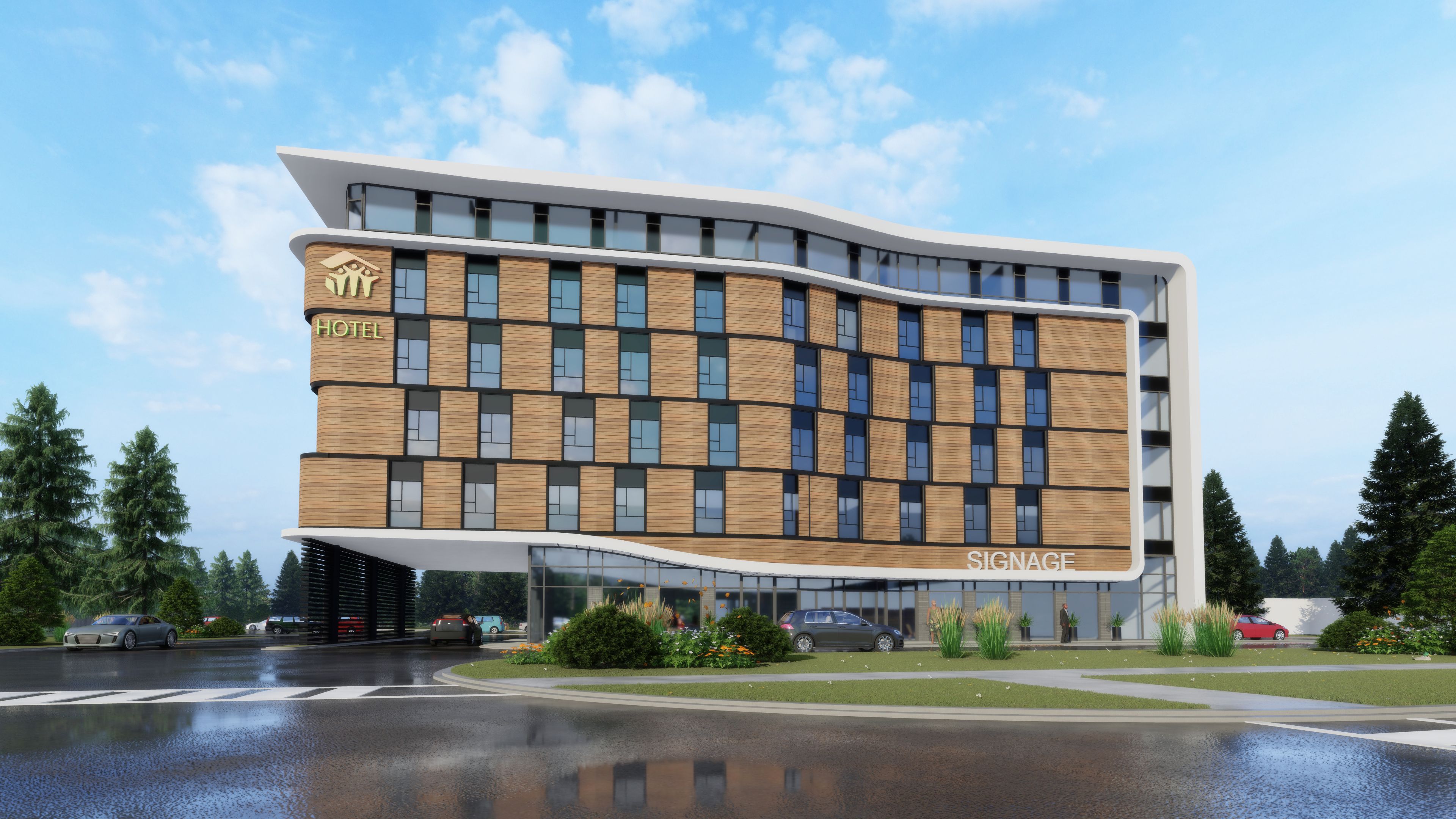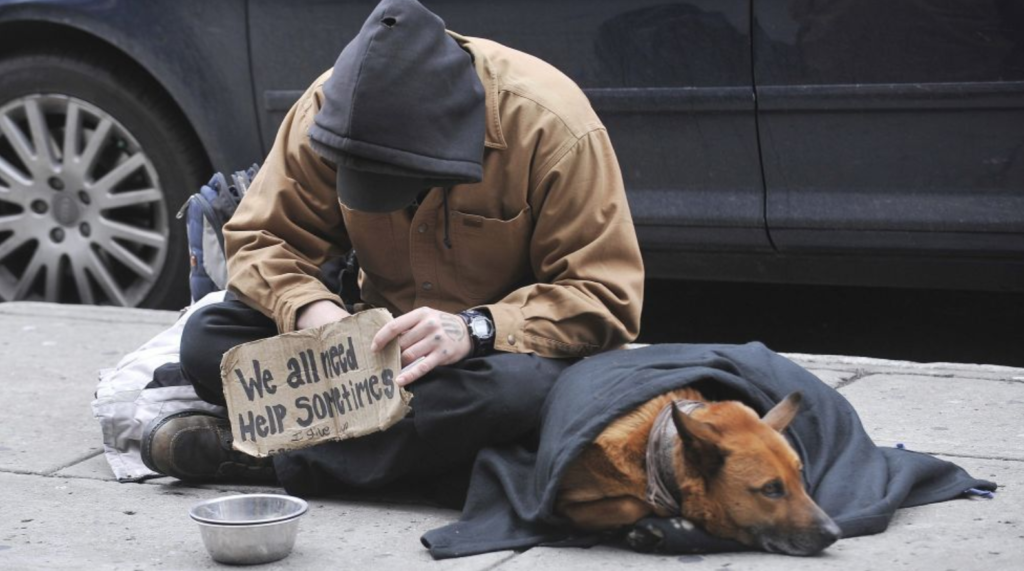Image Source: The Canadian Press
The True North Strong and Free?
It’s no secret that a lot of people take the things in their lives for granted. Whether we’re longing for the latest tech gadget, pining over perfectly sculpted six pack abs, or dreaming of an even bigger holiday home, we often overlook how fortunate we really are.
Because a safe home and good health are just basic human rights, yes? Well, for far too many people, a healthy home life is just not an option.
At this moment, 3 million Canadian households are precariously homed, living in unaffordable, substandard, or overcrowded housing conditions. Almost 1 in 5 households are currently experiencing serious housing affordability problems which puts them directly at risk of homelessness. In 2016 alone, an estimated 235-thousand people in Canada experienced homelessness with an average of 35-thousand people living on the streets on any given night. A true national housing crisis, these numbers are actually estimated to be even higher in today’s society.
The demographic of Canadian homelessness has also diversified over time. Historically, homeless individuals were typically older, single men. The crisis we see today shows an inflated number of homeless women, families, and youth than in previous years. Shockingly, youth (ages 16-24) actually make up about 20% of this homeless population. Homelessness does not have a preference of who it affects.

Housing affordability directly impacts a person’s health, both mentally and physically. This impact is even more prevalent in children. These young homeless individuals lack the experience of independent living in a home setting and could subsequently suffer from developmental changes such as social, emotional, physical, and cognitive issues. Due to these factors, homeless youth are not equipped with the resilience, education, social supports, or life skills that they need in order to transition smoothly into adulthood and true independence. Everyone has the right to the essentials of life and that includes access to safe and adequate housing.
So why are so many children still living on the streets?
Many plans to build affordable options just aren’t enough to support the magnitude of the housing crisis. For example, New Brunswick has promised to create more accessible options, but their latest agreement will only create 151 units in its first 3 years. Compared to the 500 people across the province who are currently homeless and the other 5,000 households on the wait list for subsidized housing, 151 units isn’t nearly enough to support everyone.
People who have never before experienced homelessness are now being subjected to living on the streets due to inflated rents and the sheer lack of other affordable options, such as tiny homes and community housing. This must change.
Going Hand in Hand: Health Implications
Safe and accessible housing is a fundamental human right – The United Nations recognizes the following:
“The States Parties to the present Covenant recognize the right of everyone to an adequate standard of living for himself and his family, including adequate food, clothing and housing, and to the continuous improvement of living conditions.”
While that looks good on paper, it’s hard to ignore the alarming amount of people around the world that are living in poor housing conditions, unable to enjoy the freedom that their rights promote.
So what effect does accessible housing actually have on a person’s health?

In short, a person’s health is greatly impacted, not only putting the individual or family in a potentially harmful environment, but by adding mental strain that they would not otherwise experience. Without a home, a family is vulnerable.
Imagine that you are the single mother of two children and you have no accessible housing options. You can’t keep up with your heavy mortgage payments, you can’t afford to send your kids to soccer practice, and you have no additional support. The knock-on effect of this housing crisis makes it incredibly difficult to keep up with your family’s other essential expenses such as food and healthcare. Wouldn’t you be a little stressed?
To realize the pressure that a family goes through without adequate housing, we must look at what a home provides:
Four walls and a solid foundation – Protection from the outside elements, boundaries to keep out dangerous individuals looking to cause harm; a barrier from outside illnesses caused by animals and poor hygiene. Youth especially need a secure place where they can focus on growing up, not on where they are going to live. No child should have to grow up in an unsafe environment.
Your own space – Piece of mind knowing that your children have a safe space to rest and grow up; not worrying about where your family is going to sleep each night. Having your own space allows you the time to focus on the other areas of your life, such as hobbies and family bonding, promoting mental well-being.
Utilities – Heating in the cold winter months and running water so that your family can maintain good hygiene and have access to safe drinking water. Water is a major necessity that we take for granted all too often. Would you know where to go without access to a tap?
Security – A home should be a place where you feel supported and safe. Homes empower people and allow them to thrive in other areas of their lives. In its most basic form, a home provides strength, stability, and independence.
Everyone Has Impact
Habitat HM has made huge strides already with our innovative solutions to affordable housing. Aside from the exploration of tiny homes and modular housing, a bold new housing strategy in the form of a “Habitat Hub” could be the answer to the crisis our community is currently experiencing.

Picture a hotel-style hub with each floor dedicated to a partner in social services. This form of community living would act as transitional housing for each of our partnering organizations, making room in their shelters for more families and individuals in crisis. So far, Halton Multicultural Council, Halton Women’s Place, Milton Transitional Housing, and Summit Housing & Outreach Programs have joined forces with Habitat HM to make the Habitat Hub a reality. And it’s true, Canada needs more transitional housing and affordable options. Our Habitat Hub could be the start of a major accessible housing movement, breaking down the silos to support a greater goal: affordable housing for all.
In order to support more people in our community with affordable housing and to make the Habitat Hub a reality, we need your help.
Did you know that when you donate just $1 to Habitat for Humanity Halton-Mississauga, $4 are returned to the community through our Build Program?
The average cup of coffee in Canada costs $4.22 and the current population of Burlington consists of about 206-thousand people. If every person in Burlington alone donated their daily coffee money just once, we could generate almost $870-thousand in donations. Money plays a vital role in the allocation of land as it is the biggest expense we face as an organization. A mere half acre costs at least $500-thousand in the Halton region. If we had a committed community rallying behind us, just imagine what we can accomplish together.
Our ReStore’s cover all of our administrative and operational costs so that 100% of all monetary donations go right into building homes. So you can donate knowing that you have made a positive difference in your community by supporting affordable housing.
Donate today at https://habitathmd.ca/ways-to-give/donate/
Anyone can make a difference! Stop telling yourself that someone else will help when that person could be you. It’s so easy to defer responsibility to someone else. The future really is in the hands of those who rise to the opportunity.
“Never doubt that a small group of thoughtful committed citizens can change the world,” – Margaret Mead

About Habitat for Humanity Halton-Mississauga
Habitat for Humanity Halton-Mississauga is a proud member of our national organization Habitat Canada and is one of 54 local Habitat affiliates across our country. Habitat for Humanity brings communities together to help families build strength, stability, and independence through affordable home ownership. We provide a solid foundation for better, healthier lives in Canada and around the world. You can find out more about Habitat Canada at habitat.ca.

